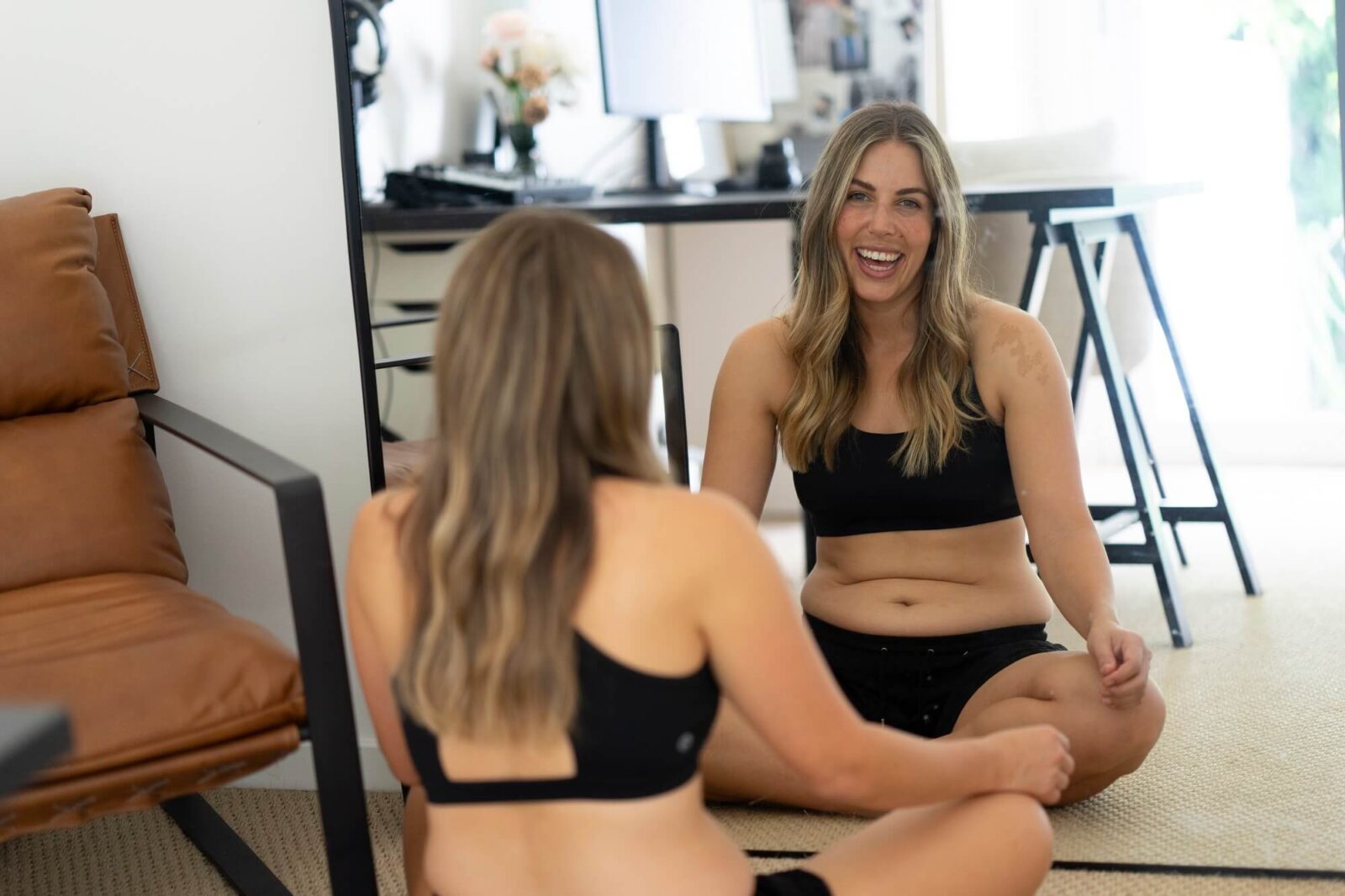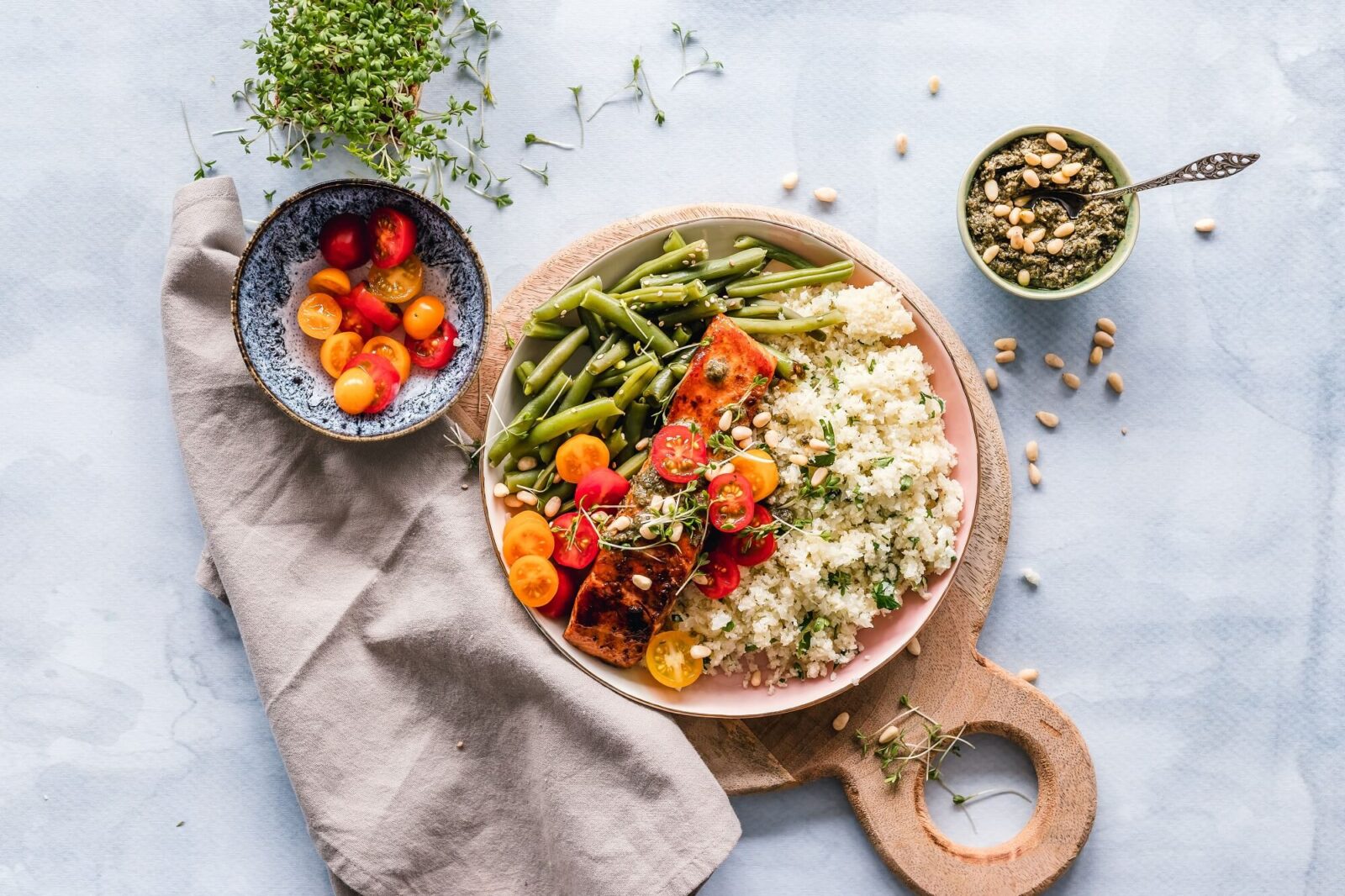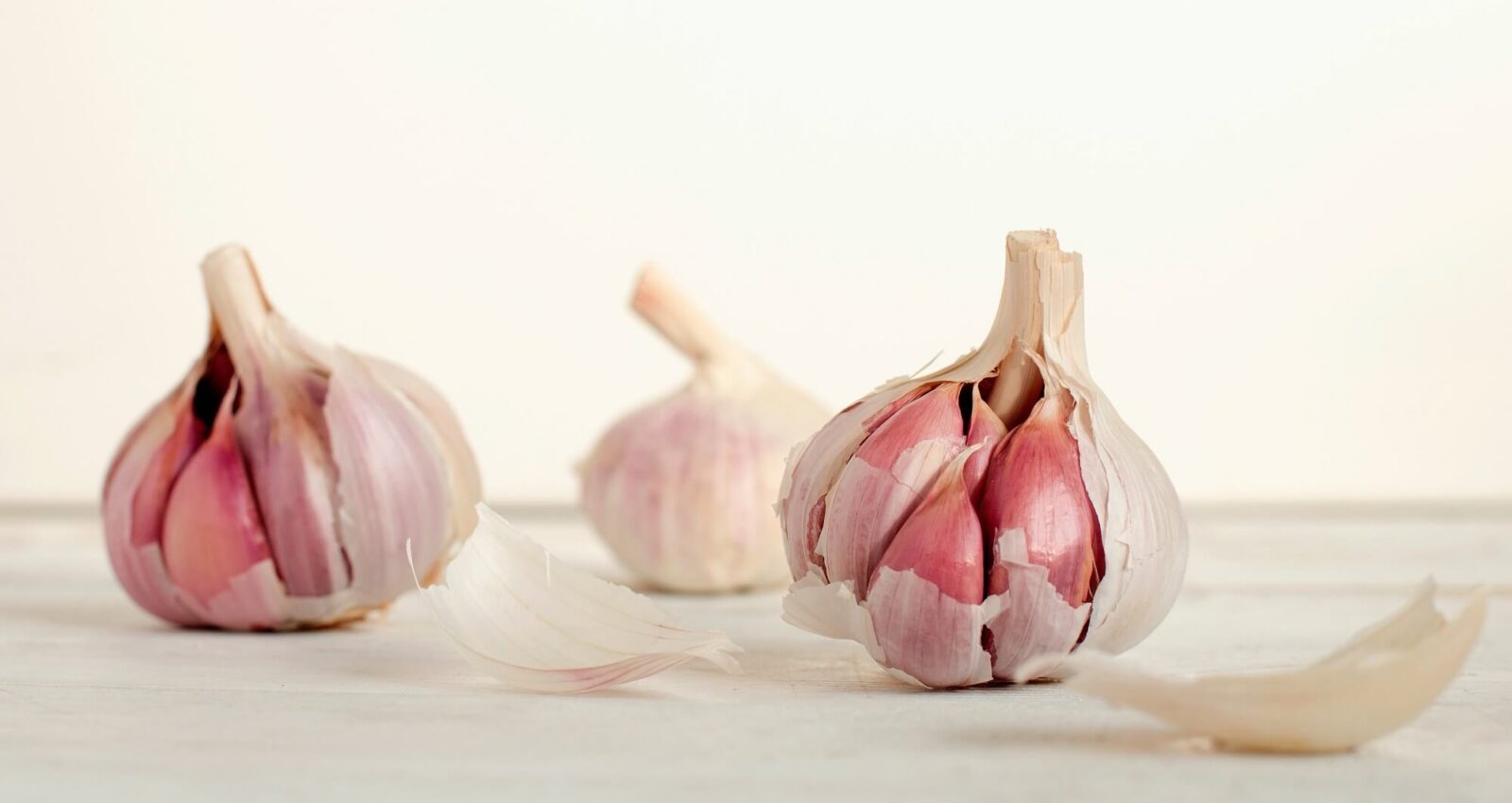As a society, we seem to have a phobia of bloating. Everywhere we look, there are well-intentioned guides on how to reduce bloating. But here’s the thing: a little bloating is completely natural.
It’s a familiar scenario.
You’re tucking into your favourite meal, whether it’s pizza, a burrito or your mum’s home-cooked spaghetti.
You’re in heaven as you devour every last morsel of delicious, carby goodness. But within about 0.5 seconds of your final mouthful, the enjoyment is replaced with that familiar feeling of regret.
Your belly feels swollen, distended and like you’re three months pregnant.
Yep, it’s the ‘dreaded’ post meal bloating.
As a society, we seem to have a phobia of bloating. Everywhere we look, there are well-intentioned guides on how to naturally reduce bloating.
Our Instagram feeds are filled with ‘before and afters’ of bikini models with abs looking slightly less shredded after a big meal.
But here’s the thing: a little bloating is completely natural.
Our stomachs naturally distend after eating to allow for digestion, even if you’ve eaten something perfectly healthy.
How to deal with bloating
When bloating is purely a superficial issue (ie. there’s no pain or major discomfort), the best thing you can do is change your mindset around it.
It helps to remind yourself that it’s normal, your body’s natural processes at work. Your body is just digested, and using all those glorious nutrients to fuel your body!

Often, what we hate so much about bloating is the fact that it makes us feel like we’ve literally gained 5 kilos in one meal.
Also, when was the last time you noticed that someone else was bloated? I’m willing to bet the answer is ‘never.’ Remember, you’re probably the only one who’s going to notice your food baby.
PS. Need a little help learning to love your body, even when you’re bloated? My book Your Weight is not the Problem is packed with practical tips for improving your body image and letting go of perfectionism.
When is bloating actually an issue?
That’s not to say that bloating is always something to be ignored. Some people have genuine food intolerances which when left untreated, can lead to severe discomfort and other health issues like a compromised immune system.
So, when should I be worried about bloating? If that swollen feeling is accompanied by pain or other digestive issues (for example, constipation, diarrhoea, or needing to run to the bathroom) it’s important to see your doc.
Another telltale sign is smelly farts (sorry, had to be said!)
Gas is actually a natural, healthy reaction as it means fermentation is happening within the gut. So a little gas can be a good thing.
However, if the odour is so bad that your dog won’t even look you in the eye, you’re going to want to get that checked out.

What to do when bloating is an issue
If bloating is actually an issue for you, there are a few things you can do to deal with it:
Identify which foods are causing it
Before you figure out a way how to reduce bloating, and also how to control bloating, you first need to identify what’s causing it.
Eliminating all foods unnecessarily is a bad idea, as you can miss out on valuable nutrients.
Plus, it makes it hard to pinpoint what is actually triggering the issue.
The FODMAP Diet (where you eliminate all common food intolerances) is extremely restrictive and should only be done with the guidance of a doctor or qualified nutritionist or dietitian.
Consider the not-so-usual suspects
People are quick to point the finger at gluten or dairy when it comes to bloating. And while these are common food intolerances, it can sometimes be certain ingredients in them that cause the symptoms.
For example, lectin is a carbohydrate-binding protein found in everything from dairy products and grains to legumes and certain vegetables — and many people have been found to be intolerant to them.
Similarly, some people think they’re intolerant to rice (which is gluten-free, by the way!), but the problem is actually the garlic or onion that’s served with it.
Some people believe they have food intolerances, only to discover that they actually have a gut infection like H. Pylori, which causes similar symptoms.
Bottom line is to start by having a chat with your doctor who can refer you to a dietitian.

Don’t break up with beans (yet!)
Beans and other legumes like chickpeas are ah-mazing for you. They’re naturally high in protein and rich in fibre to help keep you ‘regular’ and keep you full for longer.
Unfortunately, they’re also a major source of bloating in some people. That said, you necessarily have to go cold turkey on beans if they’re made you bloated in the past.
Try switching to tinned beans, as these can be easier to digest than dried ones. Rinsing them twice before using can also help.
The portion size is also important. So, start with small amounts, eating them more regularly before you up your portion size. Many people rarely eat legumes, eat a whole serve, then wonder why they feel average.
If you eat them frequently, chances are your gut will get used to eating them. And If your gut doesn’t get used to eating legumes, that’s okay! They’re not for everyone and there are plenty of other delicious foods out there you can eat instead.
For real health that lasts longer than a celebrity marriage, it’s time for a new approach. Here’s how I can help you…
Want to be healthy but can’t handle going on another pesky diet? My Back to Basics App has everything you need. Try it FREE for 7-days.
Listen to my podcast No Wellness Wankery, which will help you sidestep wellness wankery (phew!) so you can be healthy without dieting and feel better in your already wonderful body.
Want help with binge or emotional eating? Check out my online program Binge Free Academy. It’s already helped thousands of people create a healthier, more balanced and intuitive relationship with food.
Just looking for recipe inspo? You’ll be stoked to find hundreds of FREE, deliciously simple recipes on my website!